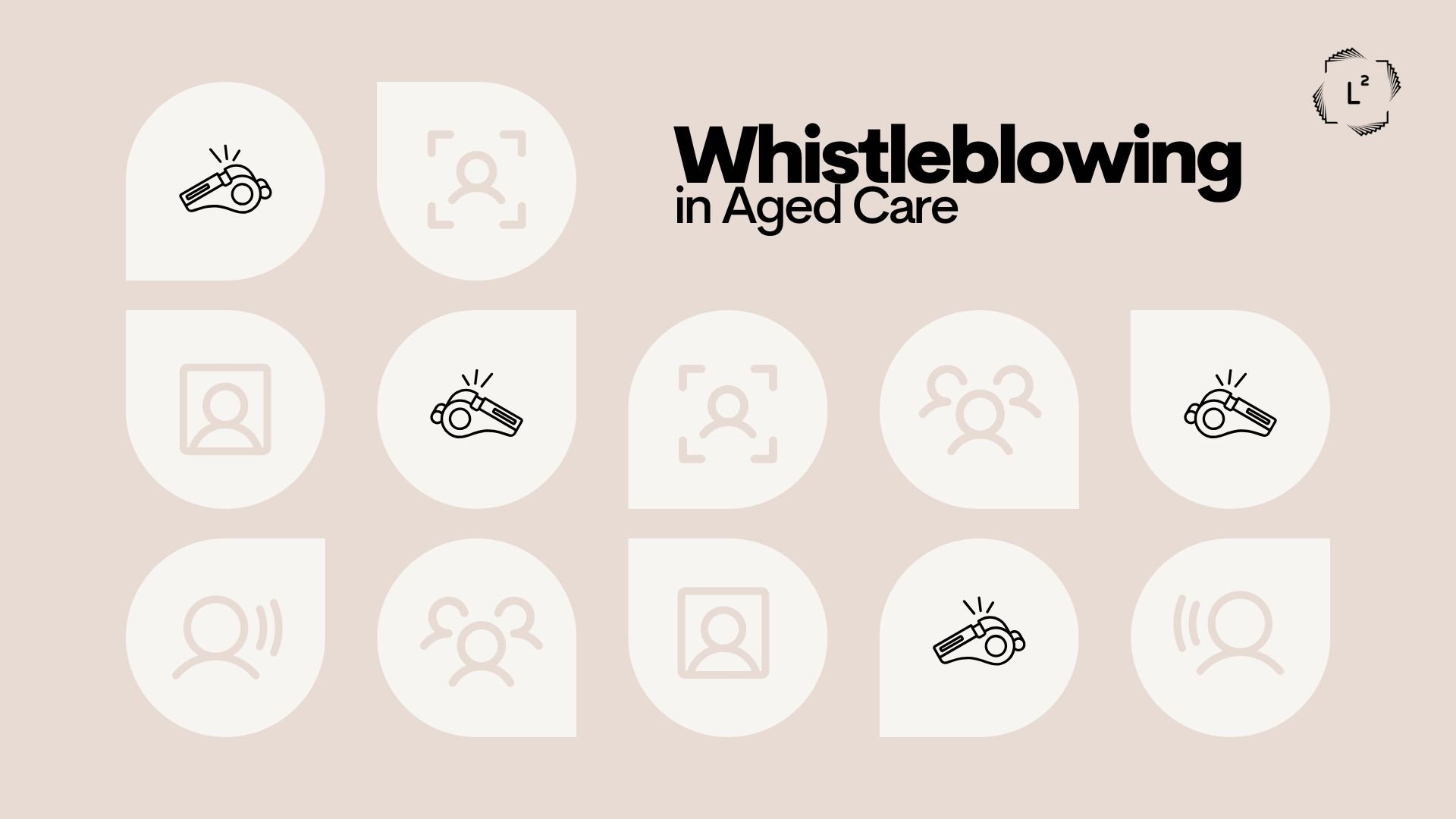Whistleblowing in Aged Care: What’s Changing from 1 November 2025
From 1 November 2025, a new whistleblower framework in the Australian aged care sector is being introduced under the Aged Care Act 2024 (Cth) (Aged Care Act). Designed with a rights-based, transparency-focused approach following the Royal Commission’s recommendations, it aims to strengthen safety and accountability in aged care.
Why It Matters
In essence, whistleblowing becomes a condition of registration as an aged care provider in Australia. Providers must have an effective policy and system - not just paperwork - that’s integrated with complaints and feedback mechanisms.
What Counts as a Protected Disclosure
A disclosure is protected if someone reasonably suspects a breach of the Aged Care Act and reports it - anonymously or not - to an eligible recipient, such as internal staff (provider, responsible persons, aged care workers) or external bodies (Aged Care Commission, System Governor, Department officials, police, or advocates).
What Protections are Available for Whistleblowers?
Effectively if an eligible whistleblower reports makes a protected disclosure to an eligible recipient, they will gain:
Immunity: Protected individuals are immune from civil, criminal, administrative, and contractual consequences - though their own misconduct remains subject to liability;
Confidentiality: Their identity must be protected; disclosure is only permitted when necessary for investigation and anonymity is preserved; and
No retaliation: Victimisation is strictly prohibited, with penalties including injunctions, compensation, or orders.
What Providers Should Do
Put simply we recommend a whistleblower policy and adequate training for your board and senior leaders, and then more general training for all of your aged care workers.
The policy should clearly explain:
what can be reported;
who can report and receive reports;
how to report (including anonymously);
what happens next; and
how confidentiality is ensured
What if my Business isn’t in the Aged Care Sector?
You may still be captured by the whistleblower obligations in the Corporations Act 2001 (Cth) if you are a public company, large proprietary company, or other type of financial service / credit licensees. These entities have similar obligations around confidentiality protections, and, in many cases, must maintain a whistleblower policy. Clear distinctions should be made in your policies between the two regimes, as they cover different matters and have different definitions for eligible recipient, eligible whistleblowers and disclosure matters.
Need Help?
Our Employment + Workplace Relations team can provide you with practical guidance on how to navigate these and other looming changes to ensure you meet your obligations under the new laws - including reviewing and preparing policies, and running tailored training. Please reach out to the team here.

